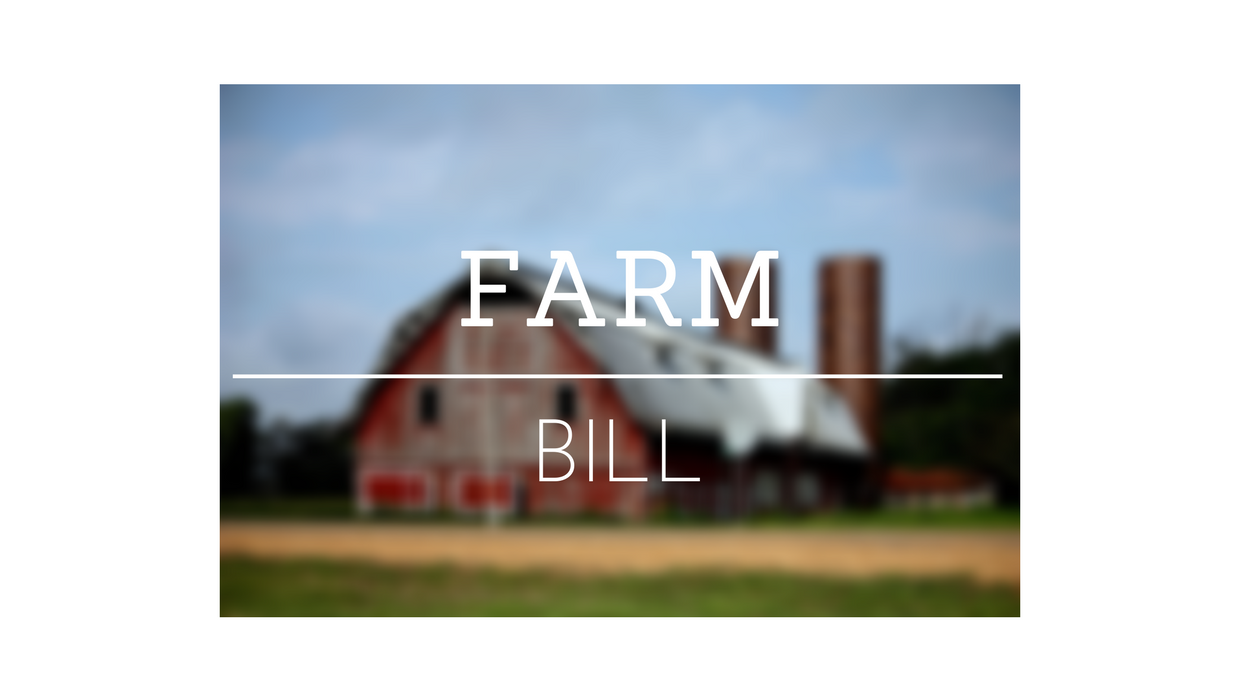In preparation for deliberations on the 2018 farm bill, a new study has called for eliminating sugar-sweetened beverages from the list of items that can be purchased with SNAP benefits.
The report, by the Bipartisan Policy Center, has former Senate Majority Leader Bill Frist, R-TN, as well as former secretaries of agriculture Dan Glickman and Ann Veneman as lead authors.
The report calls for the agriculture secretary, in consultation with the health and human services secretary, to produce a careful and precise definition of sugar-sweetened beverages to remove from the list of items that can be purchased with SNAP benefits.
The report also calls for supporting healthy food purchases by continuing and strengthening incentives for purchasing fruits and vegetables.
“As doctors, scientists and public health experts find mounting evidence for the connection between good nutrition and good health, the old adage ‘you are what you eat’ rings truer than ever,” the report’s executive summary said. “Unfortunately, however, many Americans today are not eating well. For these individuals, and for the nation as a whole, poor nutrition has multiple, compounding adverse impacts: lower quality of life and diminished opportunity, high rates of obesity and chronic disease and ballooning health care costs.
“This situation has not come about by accident: Americans’ dietary habits have been heavily influenced by the billions of dollars spent by food companies to market foods that may be more profitable but that are also, in too many instances, less healthy.”
After all, the report said, two of the nation’s most important public-assistance programs—SNAP and Medicaid—are specifically focused on food and health. Better aligning these programs to improve health and nutrition has the potential to make a difference in the daily lives of millions of Americans and—by reducing the burden of poor health and high health care costs—in the nation’s long-term fiscal and economic outlook.
Frist, Glickman and Veneman led a 13-member task force to hear from outside experts, to discuss the issues and to explore solutions. Task force members and staff also spoke with leaders from more than 50 organizations to solicit input from a range of groups, including state, federal and local program administrators; health-promotion, anti-hunger and anti-poverty advocates; food and beverage producers, manufacturers, retailers and associations; and academic researchers.
“Task force members shared an appreciation for the importance of SNAP in reducing food insecurity and poverty among low-income Americans,” the BPC study said. “The program plays a positive role in supporting families and communities across the country; thus, it is our strong view that any changes to increase SNAP’s focus on nutrition and healthier food choices must be undertaken in ways that strengthen the program and make it more effective.
“Given that existing SNAP benefits are relatively meager (less than $1.39 per person per meal), we strongly oppose any changes that would reduce the value of SNAP benefits or make them more difficult for qualified individuals to access.”
The task force’s specific recommendations target four distinct areas of opportunity; prioritizing nutrition in SNAP, strengthening the SNAP-Education Program, aligning SNAP and Medicaid and coordinating federal and state agencies and programs.
Recommendation for prioritizing nutrition in SNAP include:
- Make diet quality a core SNAP objective.
- SNAP’s current core objectives (food security and fiscal integrity) should be continued and supplemented with an additional, congressionally-mandated focus on diet quality and healthy nutrition.
- Eliminate sugar-sweetened beverages from the list of items that can be purchased with SNAP benefits.
- Specifically, the agriculture secretary, in consultation with the health and human services secretary, should produce a careful and precise definition of sugar-sweetened beverages to remove from the list of items that can be purchased with SNAP benefits.
- Support healthy purchases by continuing and strengthening incentives for purchasing fruits and vegetables.
- Consolidate USDA authority over the agency’s nutrition standards and nutrition-education efforts. The pending merger of the USDA’s Food and Nutrition Service and the USDA Center for Nutrition Policy and Promotion is the ideal moment to consolidate responsibility for overseeing the FNS’s nutrition and public health missions through a new FNS deputy administrator/CNPP director position.
- Collecting and sharing store-level SNAP food-purchase data would provide the appropriate level of detail to answer key public health and programmatic questions while avoiding the privacy concerns of collecting purchase data on individual recipients.
- Strengthen SNAP retailer standards to improve the food environment for all Recommendations for strengthening SNAP-education include:
- Create a robust SNAP-Education infrastructure to support implementation and evaluation of the program.
- Realign the Expanded Food and Nutrition Education Program to enable it and SNAP-Education to work synergistically while avoiding duplication.
- Recommendations to align SNAP and Medicaid include:
- Coordinate SNAP and Medicaid to improve nutrition and diet-related health outcomes.
- Work across congressional agriculture and health committees to better align SNAP, Medicaid, Medicare and other federal programs to improve the health of participants.
- Prioritize nutrition within the Medicaid program.
- Recommendations to coordinate federal and state agencies and programs include:
- Align programs and data collection related to food and nutrition across the USDA and other federal agencies.
- Reduce barriers to sharing data and coordinating outreach across state-administered federal programs.
- Adopt modern technologies for state program administration.
“By providing food security for millions of low-income Americans, SNAP is already delivering important public health benefits. But research also points to substantial opportunities for improving diet quality and health among SNAP recipients. Given the clear links that exist between nutrition, chronic disease and rising health care costs, task force members believe these opportunities must not go untapped,” the report said.
“We recognize that some of our proposals may be controversial and that broader and deeper changes will be needed over time to achieve a healthy food environment and healthy nutrition for all Americans. Clearly, there is bipartisan interest in addressing the intertwined challenges of health and poverty, and broad support for the proposition that public programs should deliver maximum benefits.
“We are confident that these recommendations can provide a foundation for strengthening SNAP, SNAP-Education and other federal programs in ways that improve nutrition, promote better health outcomes and reduce health care costs while continuing to effectively meet the food assistance needs of America’s most vulnerable citizens.”
In an interview, Glickman said SNAP is a great program that has fed as many as 40 million Americans, mostly families with young children in poor economic times.
“We found the cost of chronic diseases, particularly heart diseases and type II diabetes, has been going up astronomically over the last 20 years due to obesity and bad diets,” Glickman said. “Almost 9 percent of all SNAP purchases are for sugar-sweetened beverages without nutrient value. If you’re on SNAP, you shouldn’t be able to buy sugar-sweetened beverages with that money. You can buy dairy products, fresh fruits and vegetables, lean protein and things like that.
“You hate to see people take a big chunk of their SNAP dollars and use them to buy sugar-sweetened beverages, which cause type II diabetes and all sorts of other health maladies.”
Sign up for HPJ Insights
Our weekly newsletter delivers the latest news straight to your inbox including breaking news, our exclusive columns and much more.
Improving the health of SNAP recipients has no one simple answer, Glickman said, but the BPC sought to push the debate forward in order to find improvements to the largest portion of farm bill funding.
“I didn’t want to come off as some sort of national nanny and tell people what they can or cannot buy with SNAP, but we don’t let people buy cigarettes on SNAP, or buy liquor. The question is, are sugar-sweetened beverages in that sort of category,” Glickman said.
Glickman hoped that those involved in farm bill debate see the bigger picture into the BPC’s study that a good farm bill be passed.
“I don’t know if what we suggested will get into the farm bill or not. I think this will help people give them more information in how to use their SNAP dollars more effectively.
“I’m supportive of the SNAP program and I’m personally delighted that (Senate Agriculture Committee Chairman Pat Roberts, R-KS) is supportive and understands the relationship of getting rural and urban interests in getting a farm bill through to passage.”
Larry Dreiling can be reached at 785-628-1117 or [email protected].



